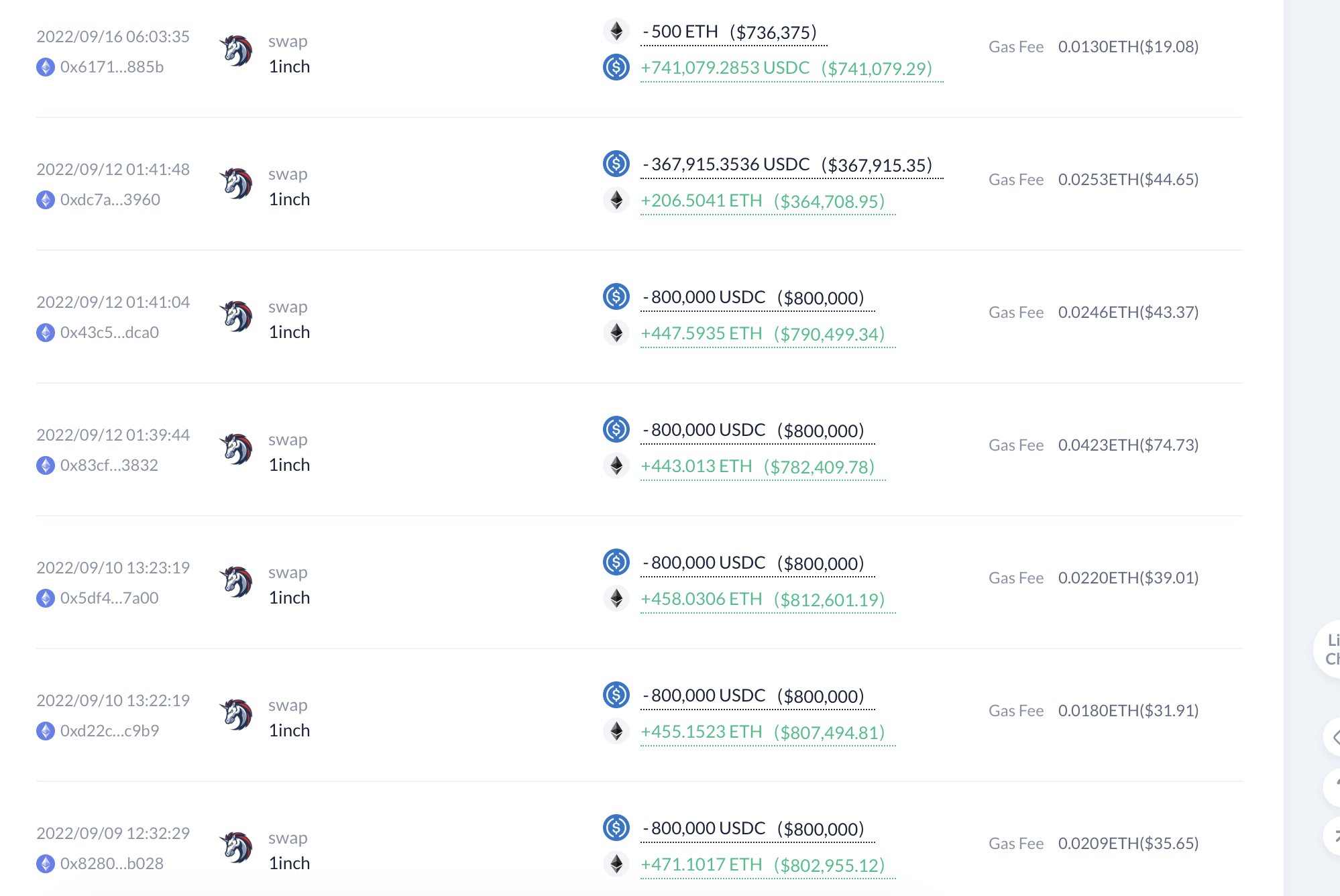An anonymous Ethereum investor has lost more than $2 million trading Ether (ETH) since Sep. 9, 2022, on-chain data shows.
Buying Ethereum high, selling low
Spotted by on-chain monitoring resource Lookonchain, the “stupid money” trader spent $12.5 million in stablecoins to buy 7,135 ETH after it rallied 10% to $1,790 in September 2022. But a subsequent correction forced the trader to sell the entire stash for $10.51 million.

As a result, the trader lost nearly $1.75 million. Interestingly, waiting and selling at today’s price would have resulted in a smaller loss of $1.14 million.
1/ Please don’t blindly follow the trend to buy $ETH after the price rises for a period of time, and don’t panic sell after the price drops.
A stupid money who loses more than 2M $USDC in half a year will tell you how dangerous this behavior is.
— Lookonchain (@lookonchain) February 22, 2023
The investor’s trades reemerged in February as ETH price had risen by approximately 10%. Data shows that $7.65 million in ETH was acquired on Feb. 16, only to sell it eight hours later as ETH price dropped, resulting in a loss of another $324,000.

3 Ethereum investment lessons to learn
Traders can use such examples to learn from others’ mistakes and reduce their investment risks with proven strategies. Let’s take a look at some of the most basic tools that can help reduce losses.
Don’t rely on just one fundamental
The investor first traded stablecoins for ETH on Sep. 12, just three days before long-awaited transition from proof-of-work (PoW) to proof-of-stake (PoS) via the Merge upgrade.
The Merge, however, turned out to be a “sell-the-news” event. Thus, going extremely bullish on Ether based on one strong fundamental was a poor decision.
Moreover, going all in while relying on one indicator, particularly a widely-anticipated news event, is often a losing strategy, which is why traders should consider multiple factors before making a decision.

For instance, one such metric was institutional flows. Ether investment funds suffered outflows worth $61.6 million a week before the Merge, according to CoinShares’ weekly report, suggesting that “smart money” was leaning bearish.
Hedge with put options
Hedging with options in Ether trading enables investors to purchase options contracts opposite their current open positions. Therefore, investors could mitigate risk by opening a put option contract against their bullish spot.
A put option gives a holder the right, but not the obligation, to sell ETH at a predetermined price on or before a particular date. So, if the spot Ether price drops, the investor could sell the asset at a pre-agreed price, thus protecting himself from losses in ETH’s value.
Don’t go all-in; check momentum
Do not put all your eggs in one basket regardless of how much capital you can throw around.
Instead, entering position in increments could be a safer strategy while keeping some funds on the sidelines. Thus, traders can buy ETH during a short or long term bull run but can spare some capital to buy during potential dips, while relying on multiple technical indicators for cues.
For instance, momentum oscillators like the relative strength index (RSI) reveals whether Ether is oversold or overbought on specific timeframes. So a strategy of going long when the RSI reading is close or above the 70 and forming a lower high has a high chance of failure.
Related: A beginner’s guide to cryptocurrency trading strategies
The Ethereum daily chart below shows the two instances when the abovementioned investor bought ETH alongside the RSI forming a lower high.

Ultimately, traders’ mistakes can serve as opportunities to learn what works for an investor and what doesn’t. The main takeaway is that investors should enter a market with a definite plan based on their own analysis and risk appetite.
This article does not contain investment advice or recommendations. Every investment and trading move involves risk, and readers should conduct their own research when making a decision.



Very nice post. I just stumbled upon your blog and wanted to say that I’ve really enjoyed browsing your blog posts. In any case I’ll be subscribing to your feed and I hope you write again soon!